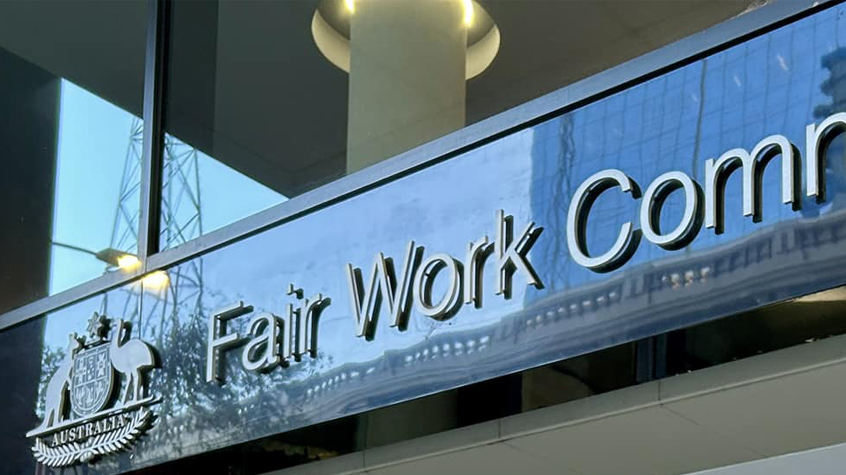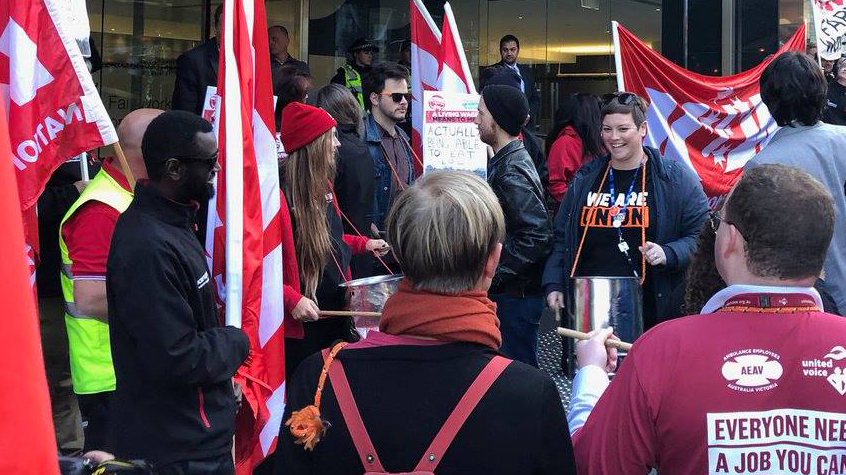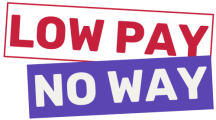Everything you need to know about award wages and how they increase

If you’ve read your employment contract, it should tell you if you’re covered by an industry award. Awards are legal documents outlining minimum pay rates and conditions for about 100 industries.
Around 3 million people are on award wages, so how they’re worked out is important.
Here’s an outline of how they work, and how unions fight each year to increase them.
What’s the minimum wage and why do we have it?
Every worker in Australia is entitled to a minimum wage. This pay rate is set by the Fair Work Commission and it’s the lowest rate a person should receive (excluding trainees and junior workers).
As of 1 July 2023, the national minimum wage is $23.23 per hour, or $882.80 per week.
Former Assistant Secretary of the Australian Council of Trade Unions, Tim Lyons, says the original purpose of a minimum wage was to ensure a worker didn’t live in poverty.
“We had the world’s first minimum wage in 1907. It was terribly sexist, but it was of its time and it said a man may work full time and look after his family in frugal comfort,” Tim explains.
“The reality is,” he continues, “if you’re anywhere near minimum wage in Australia, you’re on the bones of your arse”.
But what has the minimum wage got to do with award wages?
Less than 2% of Australians work for minimum wage. However, according to the National President of the United Workers Union, Jo Schofield, this is growing.
“The overall number of workers in the economy who rely on the minimum wage has increased over recent years – meaning more and more workers are working for the bare minimum standard of wages and conditions which are set in an award,” she explains.
The minimum wage acts as the basis for award wages. So, an employee covered by an award must – by law – receive a higher pay rate than the national minimum wage. You can check your award here.
Award rates are also the basis for millions of workers on enterprise agreements, so when awards go up, so do most wages.
So, will my wage increase happen automatically?
We all know the cost of living is increasing and although inflation has recently been stabilising, it’s been rising at record highs for the past few years.
But award wages don’t automatically go up to match inflation.

Every year, the Fair Work Commission considers whether or not the minimum wage and award wage rates should be increased. They seek submissions from unions, government and industry groups to put their cases forward. According to Tim Lyons, it’s like a mini court case every year.
“What it involves is essentially an argument between the trade unions with a very limited number of allies, largely the welfare sector, against everybody else about trying to increase minimum wage.
Are there valid arguments against a minimum wage rise?
Trade unions are arguing for a rise again this year to cope with the ongoing cost-of-living crisis. But most employer groups usually want to freeze award wages.
“Their arguments are normally that if the minimum wage increases, there will be a massive increase in unemployment. It’s never happened.
“They’ve said it would cause ‘cost push inflation’, so employers would pass on increased wages cost to consumers. It’s never happened.
“If you increase the minimum wage by 50%, you would see a consumer effect. But if you’re talking about increasing the minimum wage by 7 or 8 per cent, you won’t see anything,” Tim explains.
What can we do this year to push for an award wage increase?

In 2023, unions won a 5.75% increase in the minimum wage – one of the biggest ever, and came after thousands of UWU members took action for better pay.
Although the cost of living is still causing enormous pain for most workers, at the time, this increase was an important win and helps demonstrate what can be done if we work together.
But we still face a steep climb before our minimum wage returns to providing a decent living wage. The United Workers Union is up for that challenge.
Unions compile hundreds of pages of expert evidence every year to show why we need an increase in wages. But, the Commissioners listen more closely when unions can say we speak for millions of workers.
In this game, numbers really do matter. If you’re not a member, it’s time to join.
Are you ready to get involved? Find out more about how joining a union can help you win better pay

